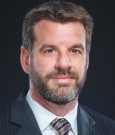A 2018 study by Cathcart-Rake et al in the journal Cancer on the rates of acquisition of sexual orientation and gender identity data among community oncology practices found that only 24% of these practices routinely asked patients about their sexual orientation, and only 10% asked about gender identity. The oncology practices that did collect that data, according to the study results, were disproportionally located in urban centers or states that had liberal political leanings, leaving lesbian, gay, bisexual, transgender, or queer (LGBTQ) patients in other areas of the country underrepresented.
Now, a new Web-based survey of health-care providers in the ECOG-ACRIN Cancer Research Group provides additional information on attitudes, knowledge, and institutional practices regarding LGBTQ patients with cancer. The survey found that although interest in receiving education about these patients was high, knowledge of their unique health and cancer care needs was limited.
The study by Matthew B. Schabath, PhD, and colleagues was presented during the American Association for Cancer Research (AACR) Virtual Conference on the Science of Cancer Health Disparities in Racial/Ethnic Minorities and the Medically Underserved (Abstract PO-068).

"To our knowledge, this was the first study of cancer care providers in a large cancer clinical trials research group that assessed attitudes, knowledge, and institutional practices of LGBTQ patients with cancer. Consistent with prior studies, there was limited knowledge about LGBTQ [patient] health and cancer needs, but high interest in receiving education regarding this community. New and intriguing differences for many attitude and knowledge items were revealed when we stratified the responses by licensure/terminal degree, practice setting, LGBTQ friends and/or family members, and political affiliation."— Matthew B. Schabath, PhD, and colleagues
Tweet this quote
Study Methodology
To identify potential gaps in attitudes, knowledge, and institutional practices toward LGBTQ patients with cancer, in 2019, the researchers conducted a mixed-methods web-based survey of health-care providers in the ECOG-ACRIN Cancer Research Group. The survey measured providers’ attitudes and knowledge about LGBTQ patient health, as well as institutional practices regarding the collection of sexual orientation and gender identity data. The survey was completed by 490 health-care providers. Survey results were quantified using descriptive and stratified analyses.
Results
Among the 490 health-care providers that completed the survey, 77% were White, 86% were non-Hispanic, 75% were female, 81% were heterosexual, and the mean age was 46 years. Approximately 47% of the respondents were medical oncologists, 39% practiced in academic medical centers, and 49% were from the Midwest/Northeast. As reported by prior institutional and national survey studies, there was high interest (77%) in receiving education regarding the unique health needs of LGBTQ patients, an overall limited knowledge about LGBTQ health and cancer needs, and a significant decrease from survey assessment to postsurvey assessment for confidence in knowledge about LGBTQ patient health-care needs.
The researchers found high agreement (71%) among respondents regarding the importance of knowing gender identity, which was contrasted with a low agreement (48%) regarding the importance of knowing sexual orientation. Stratified analyses revealed significant differences of some attitude and knowledge items. For example, when stratified by licensure/terminal degree, MD/DO vs RN/NP/PA, MD/DO providers were significantly more willing to be listed as an LGBTQ-friendly provider (81% vs 50%, respectively) and reported to be knowledgeable about LGB health needs (69% vs 53%, respectively).
In addition, providers at academic medical centers were significantly more willing to be listed as an LGBTQ-friendly provider compared with providers at nonacademic medical centers (71% vs 53%, respectively) and were more likely to report believing there should be mandatory education regarding care of LGBTQ patients (72% vs 60%, respectively). Having family and/or friends who identify as LGBTQ—as well as political affiliation—were also strong modifiers in providers’ attitudes and knowledge about this patient population.
“To our knowledge, this was the first study of cancer care providers in a large cancer clinical trials research group that assessed attitudes, knowledge, and institutional practices of LGBTQ patients with cancer. Consistent with prior studies, there was limited knowledge about LGBTQ [patient] health and cancer needs, but high interest in receiving education regarding this community. New and intriguing differences for many attitude and knowledge items were revealed when we stratified the responses by licensure/terminal degree, practice setting, LGBTQ friends and/or family members, and political affiliation,” concluded the study authors.

